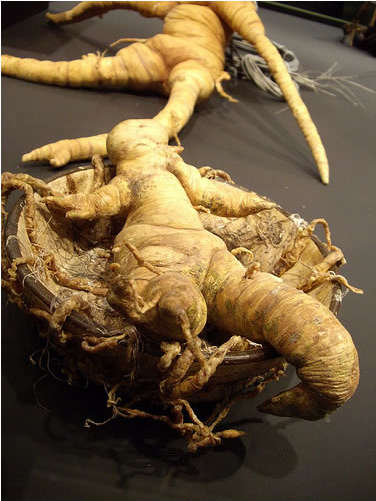FWP:
SETS == DEFINITION;
MUSHAIRAH
SPEAKING: {14,4}
The proverbially magic plant with the human-shaped root is called in English 'mandrake', and belongs to the 'mandragora' family; mihr-giyā perhaps contains some cognate echo. Whether it does or not, clearly the affinity between its name, 'mihr-grass', and the mihr that means kindness or graciousness, as in mihrbānī , is at the heart of the verse.
In fact there's not much else going on
in the verse. It would surely be at its best in a mushairah,
where it would be called on only for one quick, punchy, enjoyable effect.
'A fresh word is equal to a theme',
as Talib Amuli, Shah Jahan's poet laureate, famously said. (For further
discussion, see {17,2}.) Presumably mihr-giyā is such a fresh
word that it can energize and carry the verse all by itself.

Nazm:
By 'your thorn of the road' is meant the thorn that has lodged in the lover's foot during his search for the beloved. The reason for calling it mihr-giyā is that it became the cause of the beloved's affection and mercy. If it had not wounded the foot-soles, then she would not have felt mercy. And mihr-giyā -- that is, giyāh-āftāb [sun-grass]-- is a species of grass. (85)
== Nazm page 85